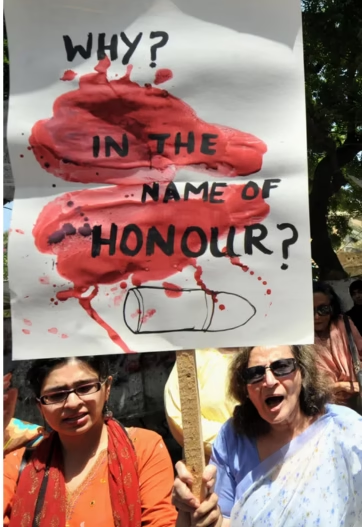The Arrest of Former ISI Chief Gen Faiz Hameed: Implications for Pakistan’s Political Landscape


After the arrest of the Inter-Services Intelligence chief (ISI), Gen Faiz Hameed, by Pakistan’s new left-leaning government, we explore how this move affects the politics of the country. But first, for those who didn’t know, let’s rewind and remind ourselves about Gen Hameed. He is closely associated with the militant groups, particularly those linked to the Afghan Taliban. In November 2020, Gen Hameed was appointed as the head of the feared intelligence agency after overseeing Pakistan’s pro-Taliban jihad in Afghanistan until 2018. His promotion to this position was not particularly surprising given the influence he wielded at the country’s top military headquarters, which had often obstructed democratic rule and took matters into its own hands during crises. It was, after all, Gen Hameed’s mansion that Gen Qamar Javed Bajwa, the current army chief of staff, was confined to when he had a significant disagreement with another military officer in 2009. However, Gen Bajwa oversaw the 2018 election-rigging operation that ensured victory for Imran Khan, now facing rebellion from his own party. Consequently, Bajwa’s reign ended with Gen Hameed as his loyal successor. Pakistan’s new left-wing coalition, led by Prime Minister Shehbaz Sharif of the Pakistan Muslim League, promises to reduce military funding and take a more direct approach to containing militant organizations. Following a meeting with John Kirby and other US government officials in Washington DC in late March, Shehbaz Sharif expressed his desire for a stronger relationship with the United States in the future.
Table of Contents:
- Introduction
- Background of the Case
- The Arrests and Military Custody
- Political Ramifications
- Implications for PTI and Imran Khan
- Conclusion
1. Introduction
Three retired military personnel have been arrested in what is seen as the latest dramatic development to hit Pakistan’s political and military establishment: court-martials were ordered against the former head of the premier spy agency Inter-Services Intelligence (ISI), Lt Gen (Retd) Faiz Hameed, and his accomplices for allegedly using ‘unlawful violence’ to harass a private housing society’s owner. This decision by the military establishment to aid judicial proceedings is a new and rare chapter in Pakistan’s troubled history of accountability and transparency.
2. Background of the Case
Yet the origins of this particular case lie in a sequence of events related to Top City, a private housing society in Islamabad. Moeez Khan, the owner of the society, said that in May 2017 Pakistan Rangers and Inter-Services Intelligence officials raided his office and house, taking away gold, diamonds and cash. Moeez, who later got acquitted from the charges brought against him, maintained that Gen Hameed, along with other military officials, acted as a mediator only to have a large portion of the seized assets swiped away from him.
Their orders, issued in November 2023, directed Moeez to avail himself of the remedial options available through the Ministry of Defence and other authorities concerned, which would essentially enable the army to investigate the case against Gen Hameed within its own ranks.
3. The Arrests and Military Custody
In a brief press release issued on 15 August 2024 the Inter-Services Public Relations (ISPR) stated that three retired armed forces officers were in military custody for ‘actions prejudicial to military discipline’ linked to the FGCM. The ISPR did not reveal their identities or ranks. But, according to sources, these arrests are part of the wide-sweeping FIR and subsequent investigations into Gen Hameed’s galloping misconduct and abuse of authority.
The arrest of Gen Hameed earlier in the week was the first time an top-ranking officer – and, particularly, one who has been a head of ar premium intelligence agency – faced the kind of public and legal scrutiny that is usually afforded only to labourers from various parts of Pakistan. The military says it was acting on the basis of the directive issued by the country’s Supreme Court in November 2023.
4. Political Ramifications
The arrest of dynamic Gen Hameed – the man with the longest grasp on Pakistan’s military and politics in decades – has political connotations:
He praised the military move toward greater self-accountability, which could provide a model for greater institutional transparency regarding internal misbehaviour.
Evidence of PTI Involvement: the ISPR said that ‘retired officers and their abettors’ were under investigation for ‘orchestrating instability at the behest of and in connivance with vested political interests’. This was clearly a reference to the Pakistan Tehreek-e-Insaf (PTI) and its founder Imran Khan.
Plot against stability: Tarar highlighted that the detained officers conspired with political elements to destablise the country. Such claims, if proven to be true, might have far-reaching impacts on the underlying dynamics of Pakistani politics.
5. Implications for PTI and Imran Khan
The PTI and its founder, Imran Khan, find themselves at a precarious juncture:
Likelihood and nature of legal action: If investigations reveale that PTI members or affiliates were complicit with destabilising activities or collaborated with the military for political benefits, this could trigger criminal action against the party and its leadership.
Damage to Public Support: Claims of collusion with military officials to undermine democracy could impact PTI’s reputation as a defender of justice and transparency.
Where does this leave Imran Khan? Having already declared that he won’t recognise Tarar as President and will contest the constitutional changes in the Supreme Court, the former Prime Minister, who faces several legal cases against him, will likely end up with less political capital by the time the dust settles. Tarar’s remarks indicate that there are ‘communications’ from Khan’s jail that might show an effort by him to shed himself of having taken particular orders, although that remains to be seen.
Wider Political Fallout: Khan and the PTI have come under fire for their alleged role in campaigns targeting the state and spreading divisions between different provinces, as noted by Sindh’s information minister, Sharjeel Memon. These criticisms may well help lead to more monitoring and continued exclusion from other political parties.
6. Conclusion
The multiple entrapments and eventual arrest of Gen Faiz Hameed and the order by the government to hold three retired military officers in custody mark a decisive turning point for Pakistan’s struggle to hold its accountability process. As Pakistan’s probe continues, the evidence emerging of alleged complicit roles between military generals and political parties such as the PTI threatens to dramatically shape Pakistan’s future democratic contests. What thefuture holds for Imran Khan and his party will be shaped by how they navigate dealing with the backlash of this reckoning.
sources : https://www.dawn.com/news/1852429
Read More News here : https://whatshappening.pk/understanding-mpox-a-global-public-health-threat/






WHO Declares Mpox Outbreak a Global Health Emergency
16th Aug 2024[…] Read More News here : https://whatshappening.pk/arrest-ex-isi-chief-pakistan-politics/ […]
Nawaz Announces 14 Rupees Per Unit Electricity Relief for Punjab
16th Aug 2024[…] Read More News here :https://whatshappening.pk/arrest-ex-isi-chief-pakistan-politics/ […]